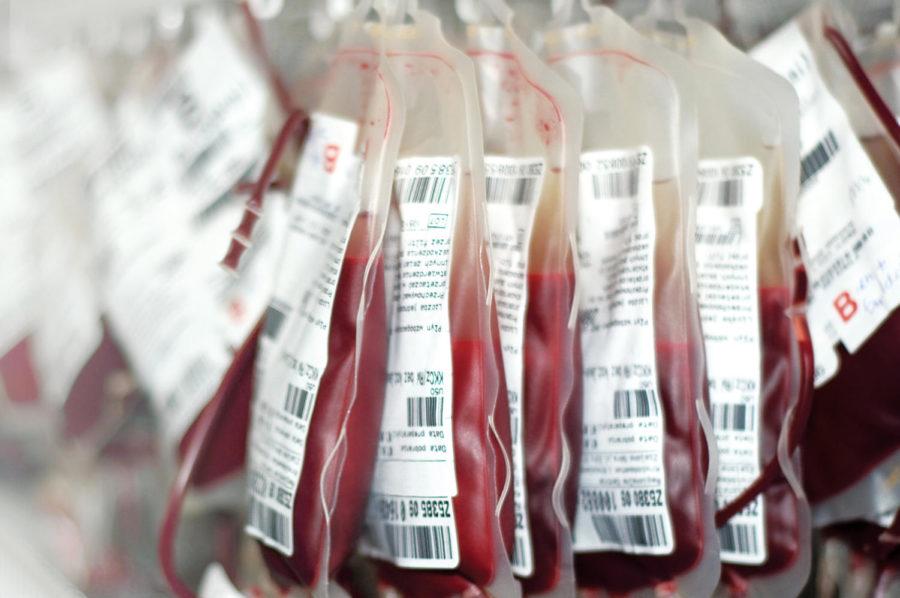DeVore: Blood donation policies inconsistent with reality of risk
Human blood in storage.
September 13, 2011
September is “National Preparedness Month” for the United States, and as a part of its campaign, the American Red Cross is encouraging people to donate blood.
The Red Cross’s advertisement reads, “If there is one thing that we have learned as a nation, it is that an ounce of prevention is worth a pound of cure.” Donating blood is such a noble thing to do, as so many people are in need due to illness or disaster, but we frequently suffer from a shortage of donated blood in the United States and many other countries have banned a very specific population from donating — men who have sex with men, or simply “MSM.”
After the AIDS epidemic of the 1980s, people around the world banned MSM from donating blood under the assumption that their blood was inevitably tainted and unsafe. Historically, the MSM population has had a higher rate of infection; however, there are no other categorical bans of populations based on infection rates related to sexual activity — even upon those who engage in opposite-sex sexual activity with multiple partners without protection.
I take issue with this because these policies stigmatize me as well as the rest of the gay, bisexual and MSM community. Policies like this infer that I am a risk to public health but also that only gay, bi and MSM are potential carriers for AIDS. Not only does it stigmatize my community, it insinuates that only male-to-male sexual contact is unsafe while heterosexual sex is safe.
If we look at the statistics on infections rates in the States, roughly 24 percent of new cases are women and just more than two-thirds of that population contracted AIDS through heterosexual intercourse. And only 50 percent of the male population with new cases contracted AIDS through male-to-male sexual contact.
Demographic reports of people living with AIDS in 2008 show that 33.3 percent were “white,” 21.4 percent were Hispanic/Latino, 42.6 percent were black/African American, with people of all other racial and ethnic backgrounds comprising less than 2 percent. Even though there are many targetable “high-risk” populations, the gay, bi and MSM populations are the only ones excluded from donating.
Awareness of AIDS crisis began in the 1980s when the disease was called “GRID” (gay-related immune deficiency) and often times the “gay plague.” I attribute the lingering stigma toward the gay population to the devastating historical roots of the medical nomenclature. If the government were to take the prevalence of infection within a community as exclusionary qualifier, they could just as easily ban the black/African American population from donating as well. But that too would be discriminatory and not accurately addressing the issue. Who you have sex with should be irrelevant, as the sex of your partner does not increase your possibility of infection. It is whether or not you are having safe sex that affects your potential for infection.
Technologies have advanced so drastically from that beginning of the AIDS crisis that the categorical ban of MSM donating blood should be defunct. Even though there is a tiny window of time in which AIDS is undetectable, new technologies have practically eradicated that small time frame. It is also important to note that the time it takes to test blood for pathogens has no affect on the creation of the majority of blood products.
So why then are we still painting AIDS as a “gay” disease? I truly feel this false advertisement is detrimental for public health, because it leads many straight people to believe they are safe from infection. As I noted before, two-thirds of new cases in women are from heterosexual sex contact. The rhetoric needs to change to fully address the epidemic as the rate of infection drastically increases each year within the heterosexual community.
Even if I was in a monogamous relationship with another man for several years and used condoms every time we had sex, I would be breaking the law by donating my blood. Yet a straight man/woman that sleeps with multiple partners a month and does not use protection can donate. I just do not see the logic in that. Clearly the straight person with multiple partners and who does not use protection is at drastically higher risks of infection than me. What is even more ironic is that I, as a gay man, can still donate my organs and sperm (both of which can carry HIV).
This utterly blind inconsistency blows my mind. Other countries have begun removing their bands on MSM blood donation, most recently the United Kingdom, as of last Thursday. The new U.K. law establishes a time period of one year between having sex and being able to donate blood. Other countries such as South Africa have established a six-month gap between sex and donation.
The United States must follow suit if we are to best serve the need of the population within our borders as well as abroad. Current practices rob people of life because of the homophobic stigmatization of AIDS. Two men having sex does not cause the spread of AIDS. Two people, of any gender, having unprotected sex spreads AIDS.

















